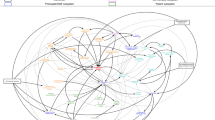Abstract
VUCA is an acronym that stands for Volatility, Uncertainty, Complexity and Ambiguity. This VUCA classification encourages creating new strategize ac-cording to unknown situations, rather than copying traditional patterns from good practices. Firstly, in order to respond to rapid changes, it is necessary for everyone to make quick decisions. To do that, a vision is required in terms of environmental volatility. Secondly, since success means continuing until achieved, which means being sustainable. Therefore, to stay successful, choose affordable losses within tolerance, rather than maximizing profits. Modeling simplifies complex phenomena. It is possible to understand complicated phenomena as they are. Lastly, if the object is not visible, it is possible that an obstacle is blocking your view. Switching perspectives, looking for the object from a different view-point may works. After analyzing the situation, design thinking is effective at the stage of creating a concrete solution. And in the current complex societies, causal loop diagram is a particularly effective method to explore a vision for sustainable business ecosystems.
Access this chapter
Tax calculation will be finalised at checkout
Purchases are for personal use only
Similar content being viewed by others
References
Lawrence, K.: Developing leaders in a VUCA environment. UNC Executive Development, pp. 1–15 (2013)
Sarasvathy, S.D.: Effectuation: Elements of Entrepreneurial Expertise. Edward Elgar Publishing (2009)
Timilsina, R.R., Nakagawa, Y., Kotani, K.: Exploring the possibility of linking and incorporating future design in backcasting and scenario planning. Sustainability, 12(23), 9907 (2020)
Stages in the Design Thinking Process: https://www.interaction-design.org/literature/article/5-stages-in-the-design-thinking-process
HL7 Version 3 Domain Analysis Model: https://www.hl7.org/implement/standards/product_brief.cfm?product_id=71/
Nishimoto, H., Koyanagi, T., Sarata, M., Kinoshita, A., Okuda, M.: “Memes” UX-Design methodology based on cognitive science regarding instrumental activities of daily living. In: Human Computer Interaction 2019, LNCS, vol. 11582, pp. 264-273 (2019). https://doi.org/10.1007/978-3-030-22219-2_20
Osterwalder, A.: The Business Model Ontology: A Proposition in a Design Science Approach (2004)
Little, R.J., Tchetgen, E.J.T., Troxel, A.B.: University of Pennsylvania 11th annual conference on statistical issues in clinical trials: estimands, missing data and sensitivity analysis (afternoon panel session), Clin. Trials 16(4), 381–390 (2019)
Acknowledgement
The author would like to acknowledge the contribution of Associate Professor Keiichi Yamamoto, Manabu Mizobuchi, Ippei Akiya and other PR team members of Japan CDISC User Group.
Author information
Authors and Affiliations
Corresponding author
Editor information
Editors and Affiliations
Rights and permissions
Copyright information
© 2021 Springer Nature Switzerland AG
About this paper
Cite this paper
Nishimoto, H. (2021). Scenario Planning in Healthcare Development in the VUCA World. In: Duffy, V.G. (eds) Digital Human Modeling and Applications in Health, Safety, Ergonomics and Risk Management. AI, Product and Service. HCII 2021. Lecture Notes in Computer Science(), vol 12778. Springer, Cham. https://doi.org/10.1007/978-3-030-77820-0_9
Download citation
DOI: https://doi.org/10.1007/978-3-030-77820-0_9
Published:
Publisher Name: Springer, Cham
Print ISBN: 978-3-030-77819-4
Online ISBN: 978-3-030-77820-0
eBook Packages: Computer ScienceComputer Science (R0)




